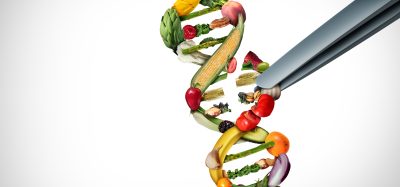Does consuming added sugars increase risk of kidney stones?
- Like
- Digg
- Del
- Tumblr
- VKontakte
- Buffer
- Love This
- Odnoklassniki
- Meneame
- Blogger
- Amazon
- Yahoo Mail
- Gmail
- AOL
- Newsvine
- HackerNews
- Evernote
- MySpace
- Mail.ru
- Viadeo
- Line
- Comments
- Yummly
- SMS
- Viber
- Telegram
- Subscribe
- Skype
- Facebook Messenger
- Kakao
- LiveJournal
- Yammer
- Edgar
- Fintel
- Mix
- Instapaper
- Copy Link
Posted: 8 August 2023 | Grace Galler | No comments yet
Researchers have found that a greater intake of added sugars may be “associated with a greater risk of kidney stones”.


According to a new study, an “elevated consumption” of added sugars “should probably be added to the list of risk factors for kidney stones”.
Added sugars can be found in many processed foods and can be found in sugar-sweetened fizzy drinks, fruit drinks, sweets, ice cream, cakes and cookies.
“Ours is the first study to report an association between added sugar consumption and kidney stones,” said Lead Author Dr Shan Yin, a Researcher at the Affiliated Hospital of North Sichuan Medical College, Nanchong, China.
“It suggests that limiting added sugar intake may help to prevent the formation of kidney stones.”
According to the University of Florida, kidney stone disease affects approximately one in every 500 individuals in the US annually. Over a lifetime, one in eight men (peak incidence of 40-60 years) and one in 16 women (peak incidence 20-50 years) will develop the disease.
Common symptoms of the disease include severe pain, nausea, vomiting, fever, chills, and bloody urine. However, it can also affect people in the long run, as it may lead to infections, swollen kidneys (hydronephrosis), renal insufficiency, and end-stage renal disease.
The study was published in Frontiers in Nutrition and analysed epidemiological data on 28,303 adult men and women, collected between 2007 to 2018 within the US National Health and Nutrition Examination Survey (NHANES).
Participants self-reported if they had a history of kidney stones. Each participant’s daily intake of added sugars was estimated from their recall of their most recent consumption of food and drinks, given twice: once in a face-to-face interview, and once in a telephone interview between three and 10 days later. As an example, participants were asked if they had eaten syrups, honey, dextrose, fructose, or pure sugar during the past 24 hours.
In addition, each participant received a healthy eating index score (HEI-2015), which summarises their diet in terms of the adequacy of beneficial diet components such as fruits, vegetables, and whole grains, and moderation of potentially harmful foods, such as refined grains, sodium, and saturated fats.
The researchers adjusted the odds of developing kidney stones per year during the trial for a range of explanatory factors. These included gender, age, race or ethnicity, relative income, BMI, HEI-2015 score, smoking status, and whether the participants had a history of diabetes.
At the start of the study, participants with a higher intake of added sugar tended to have a higher current prevalence of kidney stones, a lower HEI score, and a lower education level. The overall mean intake of added sugars was 272.1 calories per day, which corresponds to 13.2 percent of the total daily energy intake.
The research team found that, after adjusting for these factors, the percentage of energy intake from added sugars was positively and consistently correlated with kidney stones. For example, participants whose intake of added sugars was among the 25 percent highest in the population had 39 percent greater odds of developing kidney stones over the course of the study.
Similarly, participants who derived more than 25 percent of their total energy from added sugars had 88 percent greater odds than those who derived less than five percent of their total energy from added sugars.
The researchers highlighted that the mechanisms of the relation between consuming more added sugars and a greater risk of developing kidney stones is “not yet known”.
“Because this was an uncontrolled observational trial, it can’t yet be ruled out that unknown confounding factors might drive this association,” explained the research team.
“Further studies are needed to explore the association between added sugar and various diseases or pathological conditions in detail. For example, what types of kidney stones are most associated with added sugar intake? How much should we reduce our consumption of added sugars to lower the risk of kidney stone formation? Nevertheless, our findings already offer valuable insights for decision-makers,” concluded Yin.
Related topics
Beverages, Health & Nutrition, Quality analysis & quality control (QA/QC), Research & development, The consumer
Related organisations
Affiliated Hospital of North Sichuan Medical College, Frontiers in Nutrition, University of Florida, US National Health and Nutrition Examination Survey (NHANES)









